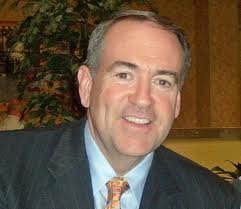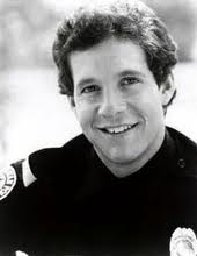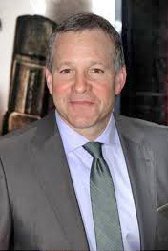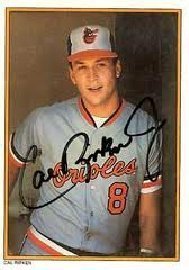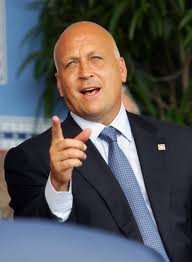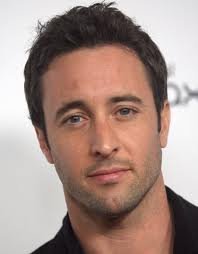
Humphrey DeForest Bogart ( December 25, 1899 – January 14, 1957), colloquially nicknamed Bogie, was an American film and stage actor. His performances in classic Hollywood cinema films made him an American cultural icon. In 1999, the American Film Institute selected Bogart as the greatest male star of classic American cinema.
Bogart began acting in Broadway shows, beginning his career in motion pictures with Up the River (1930) for 20th Century Fox, and appeared in supporting roles for the next decade, regularly portraying gangsters. He was praised for his work as Duke Mantee in The Petrified Forest (1936), but remained cast secondary to other actors at Warner Bros. who received leading roles. Bogart also received positive reviews for his performance as gangster Hugh "Baby Face" Martin, in Dead End (1937), directed by William Wyler.
His breakthrough from supporting roles to stardom was set in motion with High Sierra (1941) and catapulted in The Maltese Falcon (1941), considered one of the first great noir films. Bogart's private detectives, Sam Spade (in The Maltese Falcon) and Philip Marlowe (in 1946's The Big Sleep), became the models for detectives in other noir films. His most significant romantic lead role was with Ingrid Bergman in Casablanca (1942), which earned him his first nomination for the Academy Award for Best Actor. 44-year-old Bogart and 19-year-old Lauren Bacall fell in love during filming of To Have and Have Not (1944). In 1945, a few months after principal photography for The Big Sleep, their second film together, he divorced his third wife and married Bacall. After their marriage, they played each other's love interest in the mystery thrillers Dark Passage (1947) and Key Largo (1948). Raymond Chandler, in a 1946 letter, wrote that "Like Edward G. Robinson when he was younger, all he has to do to dominate a scene is to enter it."
Bogart's performances in The Treasure of the Sierra Madre (1948) and In a Lonely Place (1950) are now considered among his best, although they were not recognized as such when the films were released. He reprised those unsettled, unstable characters as a World War II naval-vessel commander in The Caine Mutiny (1954), which was a critical and commercial hit and earned him another Best Actor nomination. He won the Academy Award for Best Actor for his portrayal of a cantankerous river steam launch skipper opposite Katharine Hepburn's missionary in the World War I African adventure The African Queen (1951). Other significant roles in his later years included The Barefoot Contessa (1954) with Ava Gardner and his on-screen competition with William Holden for Audrey Hepburn in Sabrina (1954). A heavy smoker and drinker, Bogart died from esophageal cancer in January 1957. Lauren Bacall said of him, "There was something that made him able to be a man of his own and it showed through his work. There was also a purity, which is amazing considering the parts he played. Something solid too. I think as time goes by we all believe less and less. Here was someone who believed in something."
Humphrey DeForest Bogart was born on Christmas Day 1899 in New York City, the eldest child of Belmont DeForest Bogart and Maud Humphrey. Belmont was the only child of the unhappy marriage of Adam Welty Bogart (a Canandaigua, New York, innkeeper) and Julia Augusta Stiles, a wealthy heiress. The name "Bogart" derives from the Dutch surname, "Bogaert". Belmont and Maud married in June 1898. He was a Presbyterian, of English and Dutch descent, and a descendant of Sarah Rapelje (the first female European Christian child born in New Netherland). Maud was an Episcopalian of English heritage, and a descendant of Mayflower passenger John Howland. Humphrey was raised Episcopalian, but was non-practicing for most of his adult life.
With no viable career options, Bogart enlisted in the United States Navy in the spring of 1918 (during World War I), and served as a coxswain. He recalled later, "At eighteen, war was great stuff. Paris! Sexy French girls! Hot damn!" Bogart was recorded as a model sailor, who spent most of his sea time after the armistice ferrying troops back from Europe. Bogart left the service on June 18, 1919, at the rank of boatswain's mate third class. During the Second World War, Bogart attempted to re-enlist in the Navy but was rejected due to his age. He then volunteered for the Coast Guard Temporary Reserve in 1944, patrolling the California coastline in his yacht, the Santana.
Bogart signed a contract with the Fox Film Corporation for $750 a week. There he met Spencer Tracy, a Broadway actor whom Bogart liked and admired, and the two men became close friends and drinking companions. In 1930, Tracy first called him "Bogie". Tracy made his feature film debut in his only movie with Bogart, John Ford's early sound film Up the River (1930), in which their leading roles were as inmates. Tracy received top billing, but Bogart's picture appeared on the film's posters. He was billed fourth behind Tracy, Claire Luce and Warren Hymer but his role was almost as large as Tracy's and much larger than Luce's or Hymer's. A quarter of a century later, the two men planned to make The Desperate Hours together. Both insisted upon top billing, however; Tracy dropped out, and was replaced by Fredric March.
If you want to read a whole lot more, go here: https://en.wikipedia.org/wiki/Humphrey_Bogart
- 1 (12-ounce) can tuna, drained and flaked
- 1/2 cup mayonnaise
- 1 rib celery, sliced
- 1/4 teaspoon onion powder
- 1/4 teaspoon black pepper
- 4 slices rye or pumpernickel bread
- 4 slices mozzarella cheese
- 4 slices Cheddar cheese
- Preheat oven to 375º. Coat a 10- x 15-inch baking sheet with cooking spray.
- In a medium bowl, combine tuna, mayonnaise, celery, onion powder, and pepper; mix well. Spread equal amounts of the mixture on each slice of bread and top each with a slice of mozzarella then a slice of Cheddar cheese.
- Place on prepared baking sheet and bake 10 minutes, or until cheese is melted. Serve immediately.
1960 – Cal Ripken, Jr., American baseball player
1976 – Alex O'Loughlin, Australian actor
- 1911 – First electric waffle iron introduced by General Electric.
- 1953 – Frank Dorsa’s Eggo Frozen Waffles are sold in Supermarkets for the first time.
- 1964 – Belgian Waffles debut at New York’s World’s Fair.







